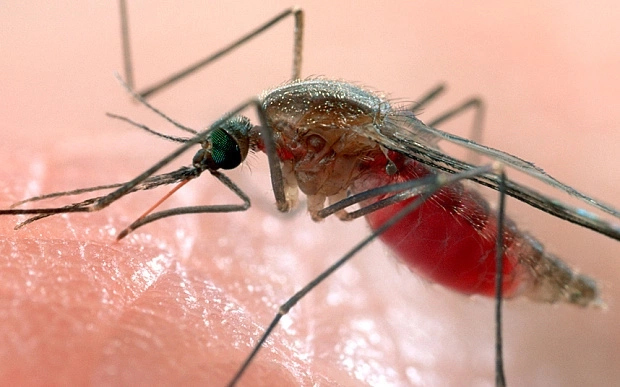Malaria in Nigeria; Causes, Effects and Possible Treatment Options
Overview, Statistics and Demography, Treatment of Malaria in Nigeria
Talk about a common malady in Nigeria and malaria is not far from it, as it is suffered by a large number of the country’s population. Malaria has become a serious issue for deliberation as pregnant women and children are its highest victims.
Nigeria which is one of the poorest countries in the world with low-income earners registers high cases of people suffering from malaria on a daily basis as the poor standard of living warrants such disease.
👉 Relocate to Canada Today!
Live, Study and Work in Canada. No Payment is Required! Hurry Now click here to Apply >> Immigrate to CanadaIt is reported that Africa records the highest number of deaths caused by malaria because of poor living. Malaria affects the morbidity and mortality rates as well as the economy of Nigeria in a very crucial way thereby depleting the available manpower who would contribute immensely to the economic development of the country.
Read Also: 5 ways to prevent malaria this year

Malaria is not a disease to be taken likely as it has done more harm than good to the populace at large. There is a high tendency for malaria in rural areas as dwellers lack access to potable water and adequate health care which is a result of a low standard of living.
Malaria is a serious disease accompanied with severe symptoms like headache, nausea, muscle pain, high fever, vomiting, anemia, chills, bloody stools, convulsions, profuse sweating and if these symptoms are not properly treated, it might put the victim in a grievous situation which might result to death.
Some people out of ignorance don’t know the dire consequences of malaria and end up mistaking it for other sicknesses thereby taking the wrong treatment which can be very harmful.
Read Also: WHO begins rehabilitation of healthcare facilities in North-east
Reports have it that there are 100 million cases of malaria with over 300,000 deaths per year in Nigeria which is high compared to 215,000 deaths from HIV/AIDS. Malaria contributes to an estimated 11% of maternal mortality.
It is such an appalling situation when one can’t sleep at night due to unpleasant sounds from mosquitoes. Mosquito bites just make a person uncomfortable.
👉 Relocate to Canada Today!
Live, Study and Work in Canada. No Payment is Required! Hurry Now click here to Apply >> Immigrate to CanadaThese mosquitoes turn the human body to a breeding ground where they leave their mark which is the malaria parasite. The female Anopheles gambiae mosquito is the carrier of the parasite (Plasmodium) which causes the malaria disease.
One of the common problems that most Nigerians face when it comes to their health is self-medication because they lack the money to get better medical treatment and result to going to a local pharmacy to buy drugs that have not been prescribed to them by a doctor.
This action can seriously affect the health of a person as sometimes the person ends up treating the wrong sickness. Malaria is indeed a serious disease and as such requires the doctor’s attention.
An unclean environment, ill-ventilated house, stagnant water attracts mosquitoes and to prevent those blood-sucking insects from invading your home, measures need to be taken to ensure that.
It is very important to know the causes of malaria so that people would know how to prevent the disease. This article is aimed a stating the causes, effects and possible treatment options for malaria.
Read Also: Poverty in Nigeria; Overview, Causes, Effects and Solutions
Causes of Malaria in Nigeria
Malaria is caused by four different protozoa: Plasmodium Vivax which is more prevalent in low endemic areas, Plasmodium ovale, Plasmodium malariae and Plasmodium falciparum which is the most dangerous of the four.
The prevalence of malaria is more dependent on the abundance of the female anopheles mosquito. When a female Anopheles mosquito bites and sucks the blood of a person affected with the malaria parasite, it becomes infected and then transmits the parasite to the next human host it bites. Malaria incubates in the human host for about eight to ten days before symptoms surfaces.
Malaria is endemic in Nigeria and also an epidemic that needs to be seriously tackled. Incentives have to be put in place by the government to ensure that people get access to adequate health care that helps to prevent the increased morbidity and mortality rates associated with malaria.
Though malaria is not a communicable disease it can still be transmitted from mother to her unborn child, through blood transfusion and by sharing needles used to inject drugs.
People become immune to the disease when they have stayed too long in areas where there is malaria but can become susceptible when they move away from such areas.
Most people who die from malaria are young children in Africa and Nigeria is not exempted. Malaria might be uncommon in temperature regions but it is common in tropical and subtropical countries.
To reduce the incidence of malaria, world health officials have introduced the distribution of bed nets to help protect people from mosquito bites at night when they sleep.
The level of illiteracy in Nigeria is high and as such people don’t know how to prevent themselves from having the disease.
Some malaria parasite stays up to a year in a person’s body before symptoms start to show. Scientists are working round the clock to develop a vaccine to help prevent malaria as a treatment for the disease is no longer active.
Read Also: Advantages Of Eating Fruits
There is a concrete truth in this saying that “prevention is better than cure”. It is better to be safe than sorry by taking the necessary steps to prevent mosquito bites.
Wearing protective clothing, using insect repellants and sleeping under treated mosquito nets would keep you far away from malaria.
Effects of Malaria in Nigeria
1. The effects of malaria on the teeming population who are more susceptible to the disease is death if preventive measures are not taken and proper treatment is not administered to the affected victims.
2. Malaria also has an adverse effect on the country’s economic development as the disease prevents the much-needed manpower from working and this can slow down or halt any activity that might contribute to the country’s economic development.
3. Malaria also prevents children from going to school as they cannot perform effectively and this can affect their education as they would be far behind on school activities.
Recommended Treatment Options for Malaria in Nigeria
The recommended treatment options for malaria in Nigeria are as follows:
Malaria is treated with the prescription of drugs to kill the malaria parasite. For treatment to commence, it is necessary for the doctor to diagnose the patient on the type of malaria parasite he/she has, the severity of the patient symptoms, the patient’s age and the pregnancy status of the patient.
The treatment recommended by the world health organization is the Artemisinin-based combination therapies (ACTs) as it is more effective in the treatment of malaria.
Patients who have severe malaria or cannot take oral medications should be given treatment by continuous intravenous infusion.
Other drugs to be considered in the treatment of malaria are chloroquine, quinine, hydrochloroquine, doxycycline, etc.
Read Also: WHO begins rehabilitation of healthcare facilities in North-east
Conclusion
Malaria is a disease that has to be completely eradicated for a healthy and productive society.






